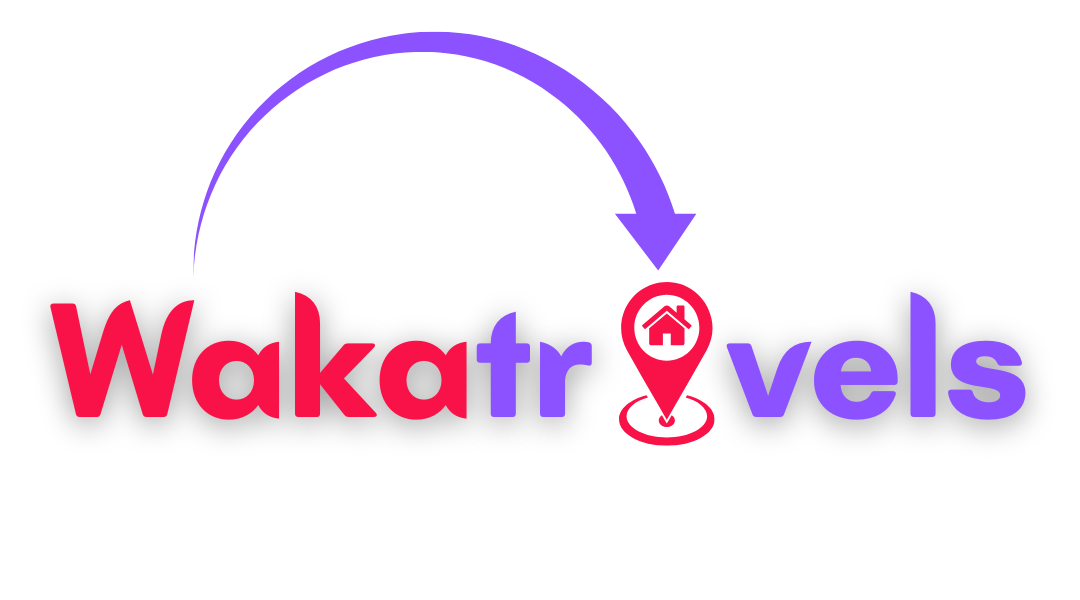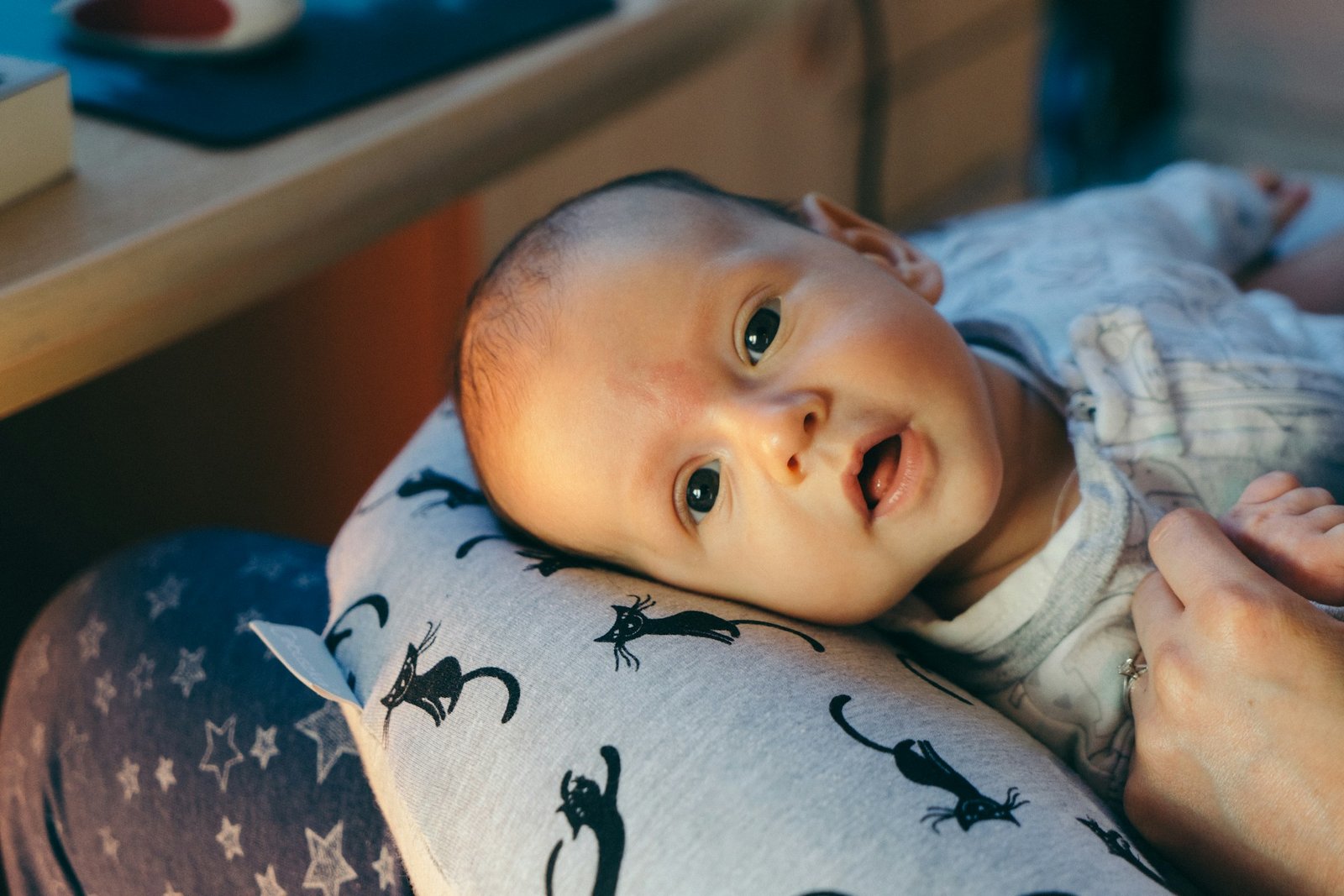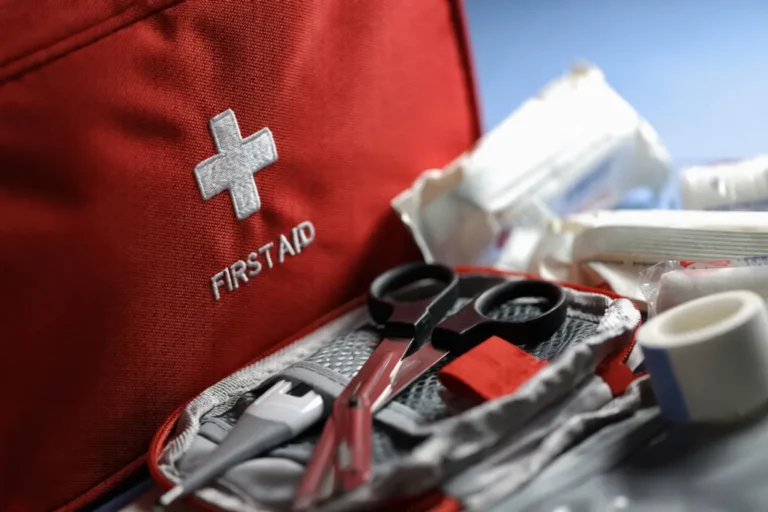Thinking about hopping on a plane with a 3-week-old infant? If you’re picturing chaos, a cacophony of cries echoing through the cabin, or sheer exhaustion that makes you question your life choices—well, you’re not alone. Flying with a newborn so fresh to the world is kind of like deciding to run a marathon on a whim; it sounds brutal, but some brave souls pull it off, and we’re here to unpack what that actually looks like.
Sure, there’s a well-meaning parade of advice: “Wait a bit,” “Don’t even think about it,” or the classic, “Isn’t the baby too fragile?” But flights don’t pause for anyone’s ‘ideal’ timing, and sometimes, life just demands you pack up the stroller and tackle the skies. It’s easy to imagine nothing but endless stress and sleepless nights, but the reality might surprise you—maybe even challenge your assumptions about newborn travel and parental endurance.
So, what’s the deal? Can you actually survive, or better yet, thrive on a flight with a brand-new baby? This mom did it, and spoiler alert: it wasn’t all chaos, tears, or airplane shaming. Here’s the unfiltered, slightly messy truth about what really happened when she flew with her 3-week-old.
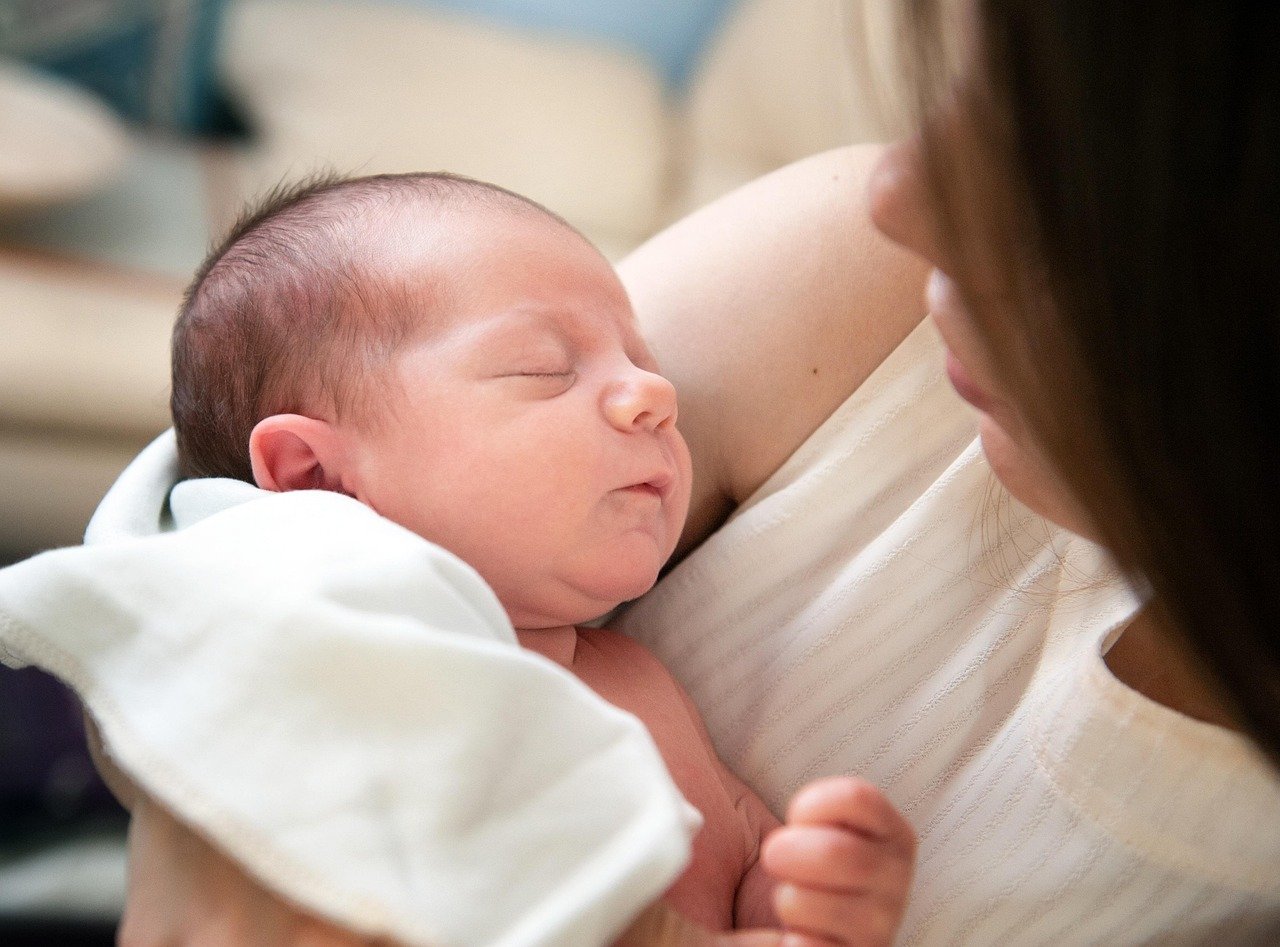
The Reality Check That Started It All
Three weeks postpartum, still wearing maternity jeans (don’t judge), I was faced with a choice. Miss my sister’s wedding—something I’d been looking forward to for over a year—or embark on what felt like an impossible mission: air travel with a newborn.
The pediatrician gave us the green light, which honestly surprised me more than it should have. “Babies are actually pretty good travelers at this age,” she said with a knowing smile. “They mostly sleep, and their immune systems get some protection from breastfeeding.”
That was reassuring, I suppose. But what she didn’t mention was the sheer logistics of it all.
What Nobody Tells You About Flying with a 3-Week-Old
The Packing Situation Is… Intense
I thought I was an efficient packer before having a baby. Ha. Traveling with a newborn requires the organizational skills of a military operation and the optimism of someone who thinks they can actually use half the stuff they’re bringing.
My carry-on looked like a small pharmacy exploded in it. Diapers (so many diapers), wipes, burp cloths, extra clothes for both of us, bottles, formula “just in case,” a breast pump, nursing pads, and—because I’m apparently an eternal optimist—a book I thought I might read during the flight.
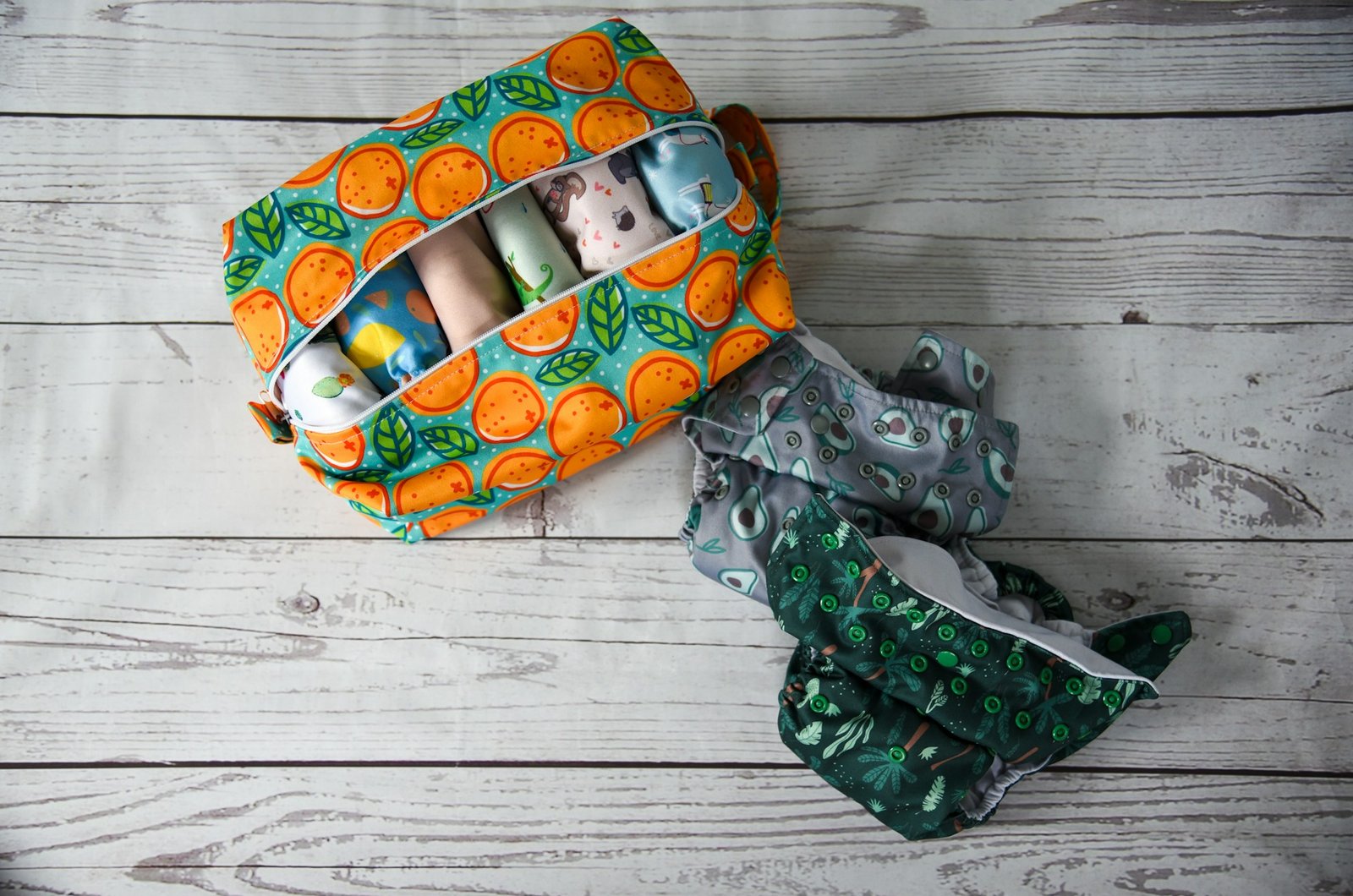
The reality? I used maybe 30% of what I brought. But you know what? I’d pack the same way again, because that unused backup onesie was my security blanket.
Airport Security Becomes an Olympic Sport
Getting through TSA with a newborn is like playing a very expensive, very public game of Tetris. You’re juggling a baby, trying to collapse a stroller one-handed, removing shoes while holding an infant who’s decided this is the perfect time to have opinions about life.
The security officers were actually incredibly helpful, which surprised me. One even held my daughter while I wrestled with the stroller—a small kindness that nearly made me cry (though to be fair, everything made me cry at three weeks postpartum).
Pro tip: Get TSA PreCheck if you don’t have it already. Trust me on this one.
The Flight Itself: A Rollercoaster of Emotions
Takeoff Terror and Unexpected Allies
I’d read all the advice about nursing during takeoff to help with ear pressure. What I hadn’t prepared for was the looks from other passengers when we boarded. Some were sympathetic smiles, others were barely concealed eye rolls.
But here’s what happened that I didn’t expect: most people were genuinely helpful. The businessman in 12A offered to help with my carry-on. The grandmother in the window seat shared stories about flying with her own babies decades ago. The flight attendant—bless her—brought me extra water without me even asking.
My daughter slept through takeoff. Completely. All that stress about ear pressure, and she was out cold before we even left the ground.
Insert image: peaceful sleeping baby on airplane
The Mid-Flight Reality Check
About halfway through the flight, she woke up. And she was not happy about her current situation.
This is the moment every parent flying with a baby dreads. The crying. The looks. The internal panic of “oh god, I’m that person with the screaming baby on the plane.”
But you know what? It lasted maybe ten minutes. I changed her diaper in the tiny airplane bathroom (an experience that deserves its own blog post), nursed her, and she was back to sleep. The passenger next to me—a dad of three—just smiled and said, “Been there. You’re doing great.”
What I Learned (And What I’d Do Differently)
The Surprising Advantages of Flying with a Newborn
- They sleep. A lot. At 3 weeks old, babies sleep 16-18 hours a day. The plane’s white noise actually helps.
- No crawling or running around to worry about. Your biggest concern is diaper changes, not chasing a toddler down the aisle.
- People are generally understanding with newborns in a way they might not be with older, louder children.
- Priority boarding is actually useful when you have 47 bags and need extra time.
What I’d Pack Differently Next Time
Looking back, I overpacked clothes and underpacked confidence. I brought six outfit changes for a 4-hour flight. I used zero. But I didn’t bring nearly enough snacks for myself—because apparently, breastfeeding makes you hungry enough to eat airplane pretzels and actually enjoy them.
I’d also pack more realistic expectations. I spent weeks stressing about every possible scenario, when the reality was much more manageable than my anxiety-fueled imagination suggested.
The Practical Stuff: What You Actually Need to Know
Airline Policies for Newborn Travel
Most airlines allow infants to fly at 2-7 days old, but many pediatricians recommend waiting until at least 2 months if it’s not essential travel. We got medical clearance because it was necessary, not just convenient.
Different airlines have different policies about:
- Lap infant fees (usually free domestically, but international flights may charge)
- Car seat policies
- Stroller gate-checking procedures
- Formula and breast milk allowances
Essential Items That Actually Matter
After my trial by fire, here’s what you really need:
- More diapers than you think you need
- Wipes (for everything, not just diaper changes)
- At least two outfit changes for baby
- One complete outfit change for yourself
- Burp cloths or muslin blankets
- Bottles and formula if not exclusively breastfeeding
- Pacifiers if your baby takes them
- A baby carrier or wrap for hands-free movement
The Unexpected Emotional Journey
Postpartum Travel Anxiety Is Real
What I wasn’t prepared for was how emotionally challenging the whole experience would be. Three weeks postpartum, your hormones are still doing whatever they want, you’re sleep-deprived, and now you’re navigating airports with a tiny human who depends on you for everything.
I cried in the airport bathroom. Twice. Once from stress, once from relief when everything went smoothly. Both were completely valid responses.
The Confidence Boost You Don’t See Coming
But here’s the thing—successfully traveling with a newborn gave me a confidence boost I didn’t expect. If I could navigate airline travel with a 3-week-old, maybe this whole parenting thing was more manageable than I thought.
It was my first real “I’ve got this” moment as a new mom.
Would I Do It Again?
The short answer? Yes, but only if necessary.
Flying with a newborn isn’t impossible, but it’s not exactly a vacation either. It’s manageable, sometimes stressful, occasionally surprising, and ultimately doable if you have a compelling reason to travel.
Would I recommend it for a leisure trip? Probably not. But for important family events, necessary relocations, or other compelling reasons? Absolutely.
The Bottom Line
Every baby is different. Every flight is different. What worked for me might not work for you, and that’s completely okay. The key is being prepared, staying flexible, and remembering that even if everything goes wrong, it’s just a few hours of your life.
My sister’s wedding was beautiful, by the way. My daughter slept through the entire ceremony—apparently, she’s got excellent timing.
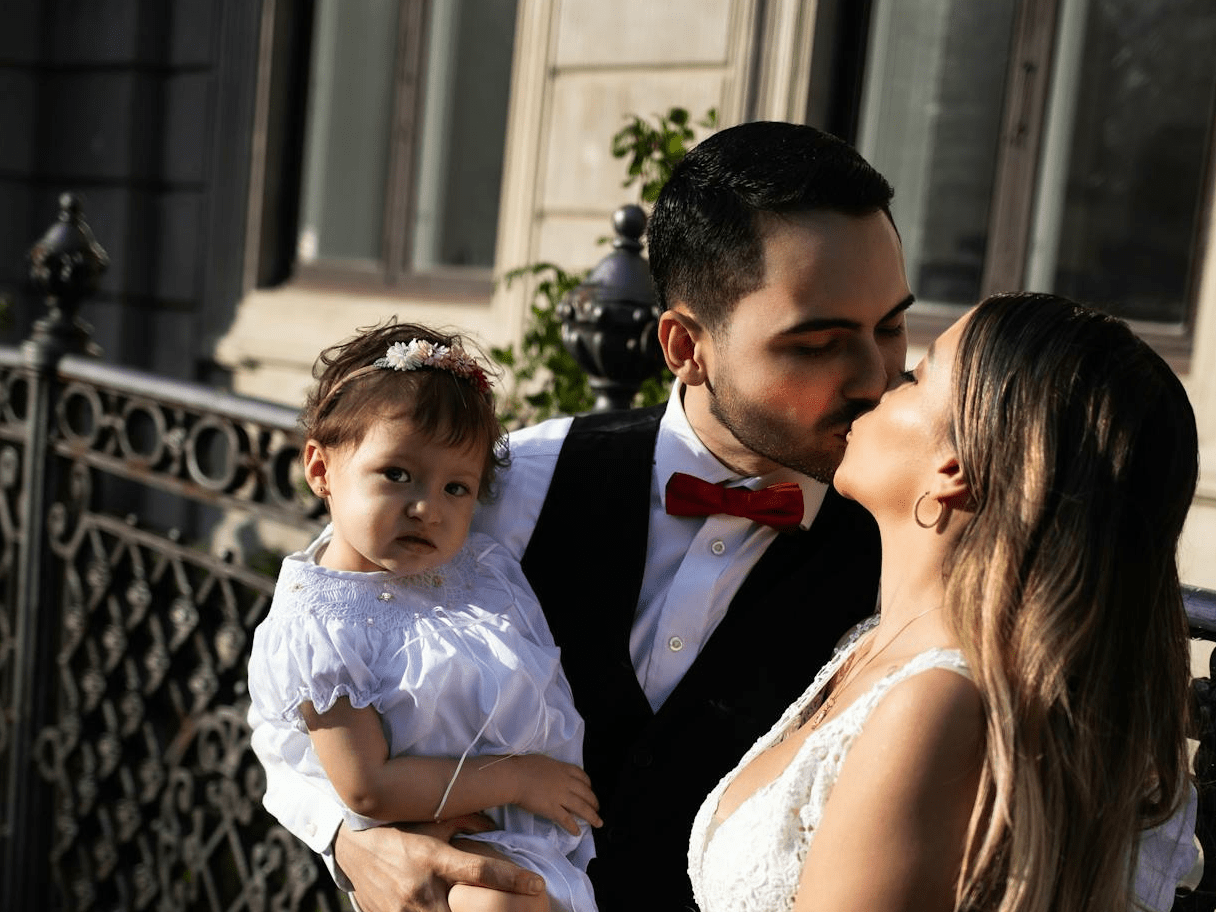
Frequently Asked Questions
What’s the youngest age a baby can fly?
Most airlines allow infants to fly from 2-7 days old, but pediatricians typically recommend waiting until at least 2 months unless travel is essential. Always consult your pediatrician before booking.
Is it safe for newborns to fly?
Generally yes, with pediatric clearance. Newborns have some immunity from breastfeeding, and cabin air is filtered. The main concerns are exposure to illness and ear pressure changes.
Do I need to buy a seat for my newborn?
For domestic flights under 2 years, babies can fly as lap infants for free. However, the safest option is purchasing a seat and using an FAA-approved car seat.
How do I handle diaper changes on the plane?
Most planes have changing tables in at least one bathroom. Bring a changing pad, plenty of diapers, wipes, and disposal bags. Change right before boarding when possible.
Can I bring formula and breast milk through security?
Yes, baby formula, breast milk, and baby food are exempt from the 3-1-1 liquid rule. Declare them at security and they may be tested separately.
What about ear pressure during takeoff and landing?
Nursing, bottle feeding, or pacifier use during takeoff and landing can help equalize ear pressure. Many newborns sleep through flights without issues.
Should I bring a car seat on the plane?
If you buy a seat for your baby, yes. Car seats must be FAA-approved and fit in the airplane seat. Otherwise, you can gate-check it for free.
How do I keep my baby calm during the flight?
Stick to normal routines as much as possible. Bring comfort items, dress in layers, and don’t stress if they cry—it happens and most passengers understand.
What if my baby gets sick before the flight?
Consult your pediatrician immediately. Airlines may require medical clearance for sick infants, and it’s often better to postpone travel if possible.
Do flight attendants help with babies?
Flight attendants can offer assistance like heating bottles or providing extra blankets, but they cannot hold your baby or provide childcare. Be prepared to handle everything yourself.
Essential Products for Flying with a Newborn
Travel Systems & Carriers
- Chicco KeyFit 30 Infant Car Seat – Lightweight, FAA-approved car seat perfect for air travel
- Baby Bjorn Mini Carrier – Compact carrier ideal for airport navigation and boarding
- Babyzen YOYO2 Stroller – Cabin-approved stroller that fits in overhead compartments
Diaper & Feeding Essentials
- Honest Company Diapers Travel Pack – Compact packaging perfect for carry-on bags
- Dr. Brown’s Travel Bottle Set – Leak-proof bottles designed for travel
- Medela Pump In Style – TSA-friendly breast pump for nursing mothers
Comfort & Sleep
- Halo SleepSack Swaddle – Provides familiar sleep environment during travel
- Skip Hop Pronto Changing Station – Portable changing pad with built-in diaper storage
- Munchkin White Hot Safety Spoons – Temperature-sensitive feeding spoons for formula preparation
Travel Organization
- JuJuBe B.F.F. Diaper Bag – Convertible backpack/tote with multiple compartments
- Babyganics Travel-Size Essentials – TSA-compliant baby care products in travel sizes
- Summer Infant Travel Booster – Portable feeding seat for airport dining
Entertainment & Comfort
- Manhattan Toy Winkel Rattle – Safe, BPA-free teething toy for entertainment
- Aden + Anais Muslin Swaddle Blankets – Multipurpose blankets for comfort and privacy
- WubbaNub Infant Pacifier – Attached stuffed animal prevents pacifier loss
Safety & Health
- FridaBaby Medicine Kit – Travel-friendly health essentials for infants
- Munchkin Arm & Hammer Diaper Bag Dispenser – Odor-eliminating diaper disposal bags
- Baby Banana Infant Training Toothbrush – Safe teething relief for travel days
Meta Description: Real mom shares honest experience flying with 3-week-old baby. Essential tips, packing lists, and what actually happens when you travel with a newborn.
Keywords Used:
- Main Keyword: flying with newborn baby
- Secondary Keywords: newborn air travel, traveling with 3 week old baby, infant flight tips, flying with baby under 2 months, newborn travel essentials, baby airplane travel, postpartum travel, newborn flight safety, infant airline policies, flying with lap infant, newborn travel anxiety, baby travel gear, airplane diaper changes, breastfeeding on planes, TSA with baby
